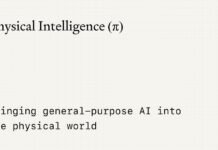Did you know AI agents’ decisions can change lives? An AI system’s 98% accuracy might seem great, but it can still make over 9,000 mistakes in judging over 300,000 criminal activities1. So, knowing the main rules for AI agents is key to their good work and right behavior.
The four main rules for AI agents are about how they see things, make smart choices, and act2. These rules help AI agents work well, whether they’re driving cars or handling big data.
As we use AI more, we need to make sure it makes smart choices and thinks about its actions in real life.
Key Takeaways
- The four main rules for AI agents include perception, decision-making, action, and rationality.
- Effective management of AI systems can help prevent serious errors.
- Rational decisions from AI agents are paramount for achieving favorable outcomes.
- Human involvement is necessary to oversee AI decision-making processes.
- The consequences of AI decisions can significantly impact lives.
Understanding AI Agents
AI agents play key roles in many fields like customer service, healthcare, and finance. They work on their own, noticing and reacting to changes around them. They can also talk to other agents or people3. The definition of an AI agent is its ability to learn from interactions, getting better over time. This is crucial for improving efficiency and making smart choices in today’s businesses4.
Definition of an AI Agent
An AI agent is an independent unit that can understand and interact with its environment. It uses sensors and actuators to do so5. Its main trait is acting based on what it sees, making choices that match its goals. This skill is key for making AI work well in real-life situations.
Types of AI Agents
There are many types of AI agents that show how they work. Simple reflex agents follow set rules to respond to their surroundings. Model-based reflex agents use an internal model to make better choices4. Goal-based agents aim to reach specific goals, adjusting their actions as needed. Utility-based agents judge the value of different outcomes in complex situations3. Learning agents get better with time, learning from their experiences4. Knowing these types helps us see how AI is used in different areas.
The Importance of Rules in AI

Rules for AI agents are key because they guide their actions and decisions. The importance of rules in AI is huge. They make AI work safely, well, and right. In fields like healthcare, finance, and online shopping, rules build trust and reduce risks.
Why Rules are Essential for AI Agents
Rules are the base for AI agents to work. Reflexive agents follow strict rules6. Goal-oriented agents plan to reach goals, showing they can make choices6. Utility-driven agents aim to get the best results, important in energy and self-driving cars6. Learning agents get better with time, showing the need for clear rules6.
Rules vs. Guidelines
Rules tell AI systems what to do, while guidelines let them be flexible. An AI guidelines comparison shows rules keep things in order, while guidelines encourage new ideas. Together, rules and guidelines help AI perform well and stay ethical.
What are the main four rules for an AI agent?
The main four rules for AI agents are key to their success. First, they must be able to see their surroundings. This means using sensors to collect data for making decisions7. Next, they need to use this data to make choices that meet their goals7.
For example, a self-driving car uses its knowledge of traffic rules and road conditions to drive well8.
After deciding, the agent must take actions that help it reach its goals7. Actuators are important here, allowing the agent to carry out tasks that change its environment8. Finally, the agent’s actions must be rational, aiming to improve performance and achieve positive outcomes78. Rationality is key to good AI behavior, making sure decisions lead to good results.
Key Characteristics of AI Agents
AI agents have several key traits that make them effective in many areas. One major trait is autonomy in AI, which lets them work on their own without human help. This freedom allows them to understand their surroundings, make smart choices, and change their actions based on what they learn.
They can handle a wide range of tasks, from analyzing data to solving complex problems. This includes helping with customer service and more.
Autonomy
Autonomy is a big deal for AI agents. It means they can make their own decisions and take actions without needing someone else to tell them what to do. This is different from older systems that always needed human input.
With autonomy, AI agents can set their own goals, plan, and then act on those plans. This helps them work more efficiently and solve tough problems on their own.
Reactivity and Proactivity
AI agents can be either reactive or proactive. Reactive agents react to what’s happening around them right away. Proactive agents, on the other hand, think ahead and act before something happens.
These traits change how AI agents interact with their world. It affects how well they can personalize and improve user experiences.
The evolution of AI agents continues to be driven by advancements in autonomy and their ability to integrate both reactive and proactive characteristics.
Conclusion
The four main rules for AI agents are key to their success. They help AI agents understand their world, make smart choices, act on those choices, and behave rationally. This framework lets them handle complex situations and reach their goals well.
As technology grows, these rules will get even better. They will help AI agents tackle new challenges in many fields11.
Knowing these AI agent principles helps create smarter systems. It also tackles the ethical and practical issues that come up in real use. Adding features like adaptability and interaction will make AI agents better and safer12.
In short, improving these basic rules will guide AI’s future. It will keep AI useful and helpful to us all. By understanding AI agent rules, we can better use artificial intelligence in our lives13.
FAQ
What are the main four rules governing an AI agent?
Why is perception important for AI agents?
How does decision making work in AI agents?
Can you explain the role of action in AI agent behavior?
What does rationality mean in the context of AI agents?
What are the characteristics that define AI agents?
Why are rules essential for the functioning of AI agents?
In what ways are AI guidelines different from rules?
Source Links
- 4 AI Essential Rules: Prompt, Review, Verify, Repeat
- Agents in AI: Exploring Intelligent Agents and Its Types, Functions & Composition
- What are AI agents, and how do they work?
- Understanding AI Agents: Types, Functions, and More
- Understanding The Concept: What Is An Agent In AI? – Neurond AI
- Mastering AI Agents: Insights into Next-Gen Systems | Inscribe AI
- AI Agents — EITC
- The Four Pillars of Rational AI: Building High-Performance Agents
- What Are AI Agents? | IBM
- Levels of AI Agents: from Rules to Large Language Models
- What are AI agents? A comprehensive guide 2024 | Codelevate
- AI Agents: A Comprehensive Guide on Understanding & Implementing Them
- Understanding AI Agents: How They Work, Types, and Practical Applications







